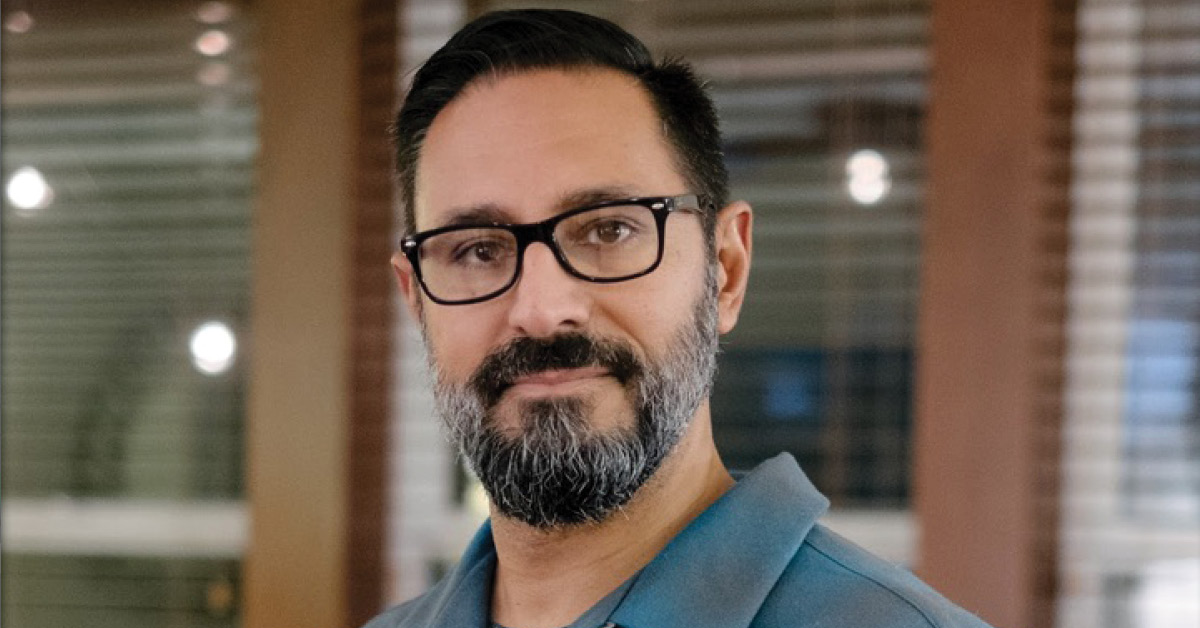Jude Bergkamp, the Chair of the PsyD in Clinical Psychology at Antioch Seattle, was recently chosen for the prestigious Competencies Task Force of the American Psychological Association. Bergkamp sees this appointment as an opportunity to shape generations of psychologists to come. As he says, “We have to get folks trained up and ready to face the new world. It’s a little bit of forecasting the future.” This future, in Bergkamp’s view, is one where the field of psychology must engage with technology, social justice, and histories of oppression.
The Competencies Task Force of the American Psychological Association (APA) was last convened 12 years ago, and it typically is formed once a decade. Its general goal is to update the “competencies”—skill and pedagogical thresholds—which are used for the training of psychologists and others accredited by the APA. As Bergkamp explains, “Psychology programs are going to have to change their curriculum, modify their programs, modify everything in order to meet these competencies.” This dictates the direction of professional psychology, and it also shapes the attitudes and assumptions of anyone who learns to practice psychology in the world.
This is why Bergkamp sees his role on the task force as a crucial opportunity to advocate for social justice. “My hope,” he says “is really that every professional competency that you can think of—intervention, assessment, relationships, research—that all of these truly have a social justice perspective integrated into them.”
Bergkamp was surprised and delighted at the invitation to join the task force. “It’s kind of high stakes,” he says. “I’m feeling the gravity of the influence we’ll have.” But he thinks he knows why they reached out to him: he serves on the Executive Council of the National Council of Schools and Programs of Professional Psychology (NCSPP), which deals with psychology schools and APA-accredited programs. Bergkamp explains, “Professional schools are where competencies were first conceptualized and implemented.” Recently, the NCSPP has been in the process of revising their own competencies. “I’ve been doing that kind of work. I understand competencies as a concept,” says Bergkamp.
In a perfect match of mission and person, what sealed the APA’s interest in Bergkamp is his “social justice perspective.” The APA itself recently published a self-critical chronology examining psychology’s contributions to the belief in racial hierarchy. Within the NCSPP, Bergkamp served as chair of the Ethnic and Racial Diversity Committee, and as a core faculty at Antioch Bergkamp has consistently worked to investigate the historical injustices and flawed assumptions of psychology. This mission, Bergkamp hopes, is something the APA will continue working to foster: an updated, justice-minded conception of psychology that is of better service to people.
Bergkamp’s students will know he has a lot to say about this. The practice of psychology has had many blind spots when it comes to power and oppression. Historically (and also not unusually), in the construction of its clinical definitions of health, psychology has often “defaulted to whiteness,” he explains. It is a “colonized field.”
“Many of the competencies are really focused on ‘How can I be trained in order to provide effective services to folks who are culturally different than I.’ But does it talk about issues of power, privilege, oppression, colonization?” asks Bergkamp. “Does it ask what core issues underlie these cultural differences? What I don’t like is how folks kind of use culture as an easy proxy, when really, we’re talking about power and privilege issues.”
In Bergkamp’s view, there is major work to be done examining the history of psychology as the product of a dominating Western culture. “There definitely is nothing in [the competencies] about looking at psychology historically as a colonial instrument,” says Bergkamp. “You know, basically establishing a capitalistic definition of normality, a hegemonic view. None of that is even remotely in the competencies.” He pauses. “I don’t know if I’m going to be able to get it in there. But that’s kind of my goal in accepting this position.”
Although he is excited, Bergkamp also foresees challenges to come. In its official documents, the task force states its goal as to “revise and update the competencies expected from graduates of doctoral programs in health service areas (clinical, counseling, school) of psychology.” But as everyone knows, change tends to meet resistance. Also, as Bergkamp explains, “Even if the committee as a whole can agree, which is our kind of a challenge, then our version of the competencies is going to have to be vetted by so many different stakeholders within the field.” This includes the Board of Educational Affairs and the Board of Professional Affairs, along with many other more specific interest groups. “It has to go through all of the different subfields you can imagine,” says Bergkamp. “The APA has more than 50 divisions. It’s going to be a drawn out process.”
Bergkamp expects the task force to take at least a year, and the work is already piling up, but he is not deterred. “I’ve been called to do it,” he says. “I joke that my parents named me after the Beatles song, ‘Hey Jude.’ But I grew up Catholic. My family was very Catholic. So I’m more like St. Jude, the patron saint of hopeless cases… like psychology competencies.”
Though Bergkamp is humorous about the immensity of the task, he believes it is justified by its potential benefit to humanity. “These competencies can assist psychologists in thinking in a much more historical and systematic manner, so that we are truly targeting the roots and etiology of human suffering,” says Bergkamp, “It’s needed. I’ll do my best to fight for it.”




